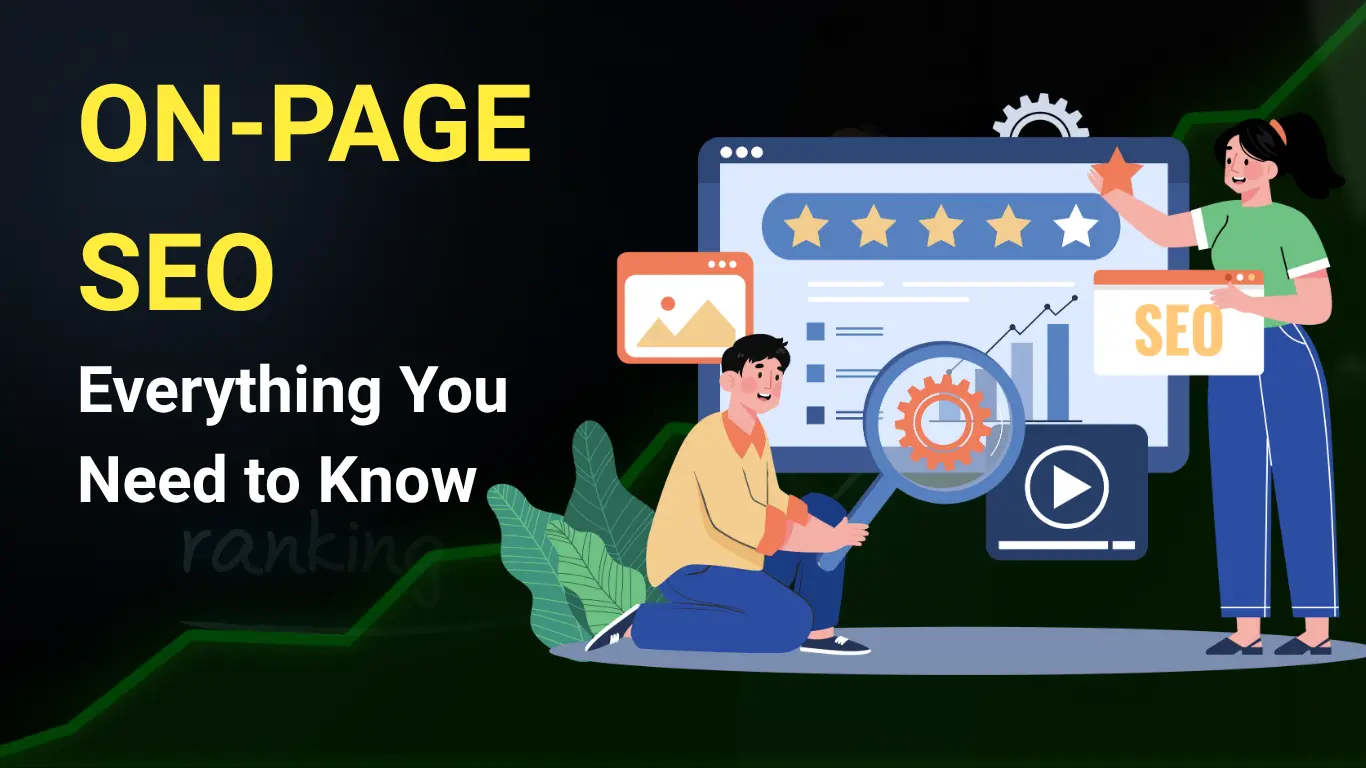
When you’re starting out with SEO, figure out what keywords people are searching for to look up your business online. These keywords tell you where to improve the content on your website. You want your content to answer people’s questions, and search engines to match your pages to their searches. Using the right keywords it will rank higher and bring more visitors.
On page SEO is about making a web page better so that it will appear higher on search engine results. It is designed to enhance those portions of the page that people or search engines observe.
For example, you’d be writing clear meta descriptions, good title tags, and tweaking other behind the scenes settings search engines use to figure out what your page is about. But these settings won’t appear when someone visits the page; they only help to determine how search engines should rank a page.
Off page SEO, things like gathering links from other websites, and technical SEO (how a website functions and operates), are all synergistic with on page SEO.
On page SEO and Off page SEO are two most effective types of search engine optimization you do.
Things on your website, inside and outside the page itself, are the focus of on page SEO. It contains your content and your keywords. Building backlinks is what off page SEO is all about, the works you do outside the website to raise your rankings. Both on page and off page SEO matter and you need to show the search engines that your website is a trusted source otherwise ranking higher on search results will be a problem.
Here’s what on-page SEO includes:
On the other hand, off-page SEO focuses on:
Posting as a guest on other sites and building links
Business websites depend on on page SEO to show up on top of the search engine such as Google. This is an increase in organic traffic and more people will come along. The internal links, the good content and the right keywords are all part of on page SEO.
To be able to show up in the search results that your customers will see you need to improve your on page SEO to be able to compete with other websites showing up on those result rows. The main benefits are:
Choose a relevant keyword for your site and then start your on page optimization. On page optimization is writing content for one page at a time and including the keyword in that content. However, don’t overuse the keyword, repeating it too much (called “keyword stuffing”) will get your site penalized by Google.
Keyword stuffing occurs when you use the keyword too many times on your website and in URLs that don’t make sense for the word. Instead, write with the keyword or its similar word acting naturally. When you want to improve the ranking of your page, use keywords in places where it would help for SEO.
There are a number of things on a web page that help the user and Google understand the page content. The same also goes for how well the page ranks in search results.
Another example would be a URL that includes a keyword rich one as it is more easily found and remembered by users. The title tag explains to Google and the user what your page is about, and the meta description entices people to click your result.
Images with descriptive alt text and headers organizing the content of your pages are going to help both users and Google understand the visuals present on the page.
Last but not least, the body copy should cover commonly asked questions of your audience and should include keywords that will help your content rank in search.
Platforms like WordPress on page Seo are pretty easy to apply. If you are building your website still, you want to ensure the platform will allow you to add and edit SEO elements. For big websites, you can automate some SEO tasks such as adding into the meta descriptions post using Excel or script.
Always write unique content for each page but the list seems to be insanely long and they ask for it without doing any penetration testing. Each page should have original text, titles and descriptions, to avoid search engines like Google being confused. Google may not show both in search results if pages have the same content. Make sure to write content that’s different and valuable for each page.
When you write for SEO, it means you write for people, not search engines. If you want to rank higher on Google, you should be writing content that answers people’s questions and is useful to people.
Ranking well is important for on site SEO, but it’s just a piece of the puzzle. You also need off site SEO and backlinks to succeed.
Here are some tips for SEO writing:
If you want your business to show up higher in search engine results, you need a website that’s optimized with on-page SEO. A digital marketing agency like Optinmark can help you improve your website by adjusting SEO elements that make it easier for your target audience to find. SEO tools let you change things like your page URL, meta descriptions, and page titles, which helps your site rank better in search engines.
WhatsApp us